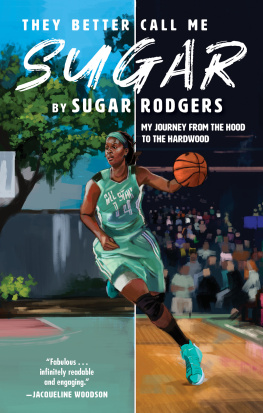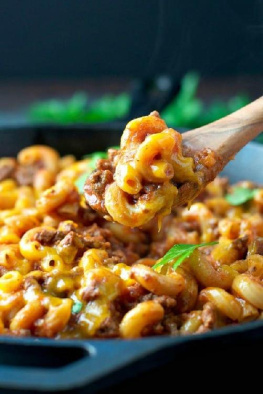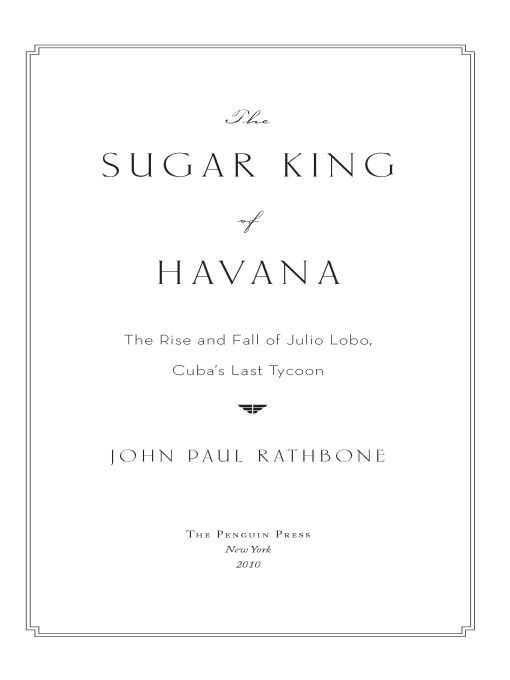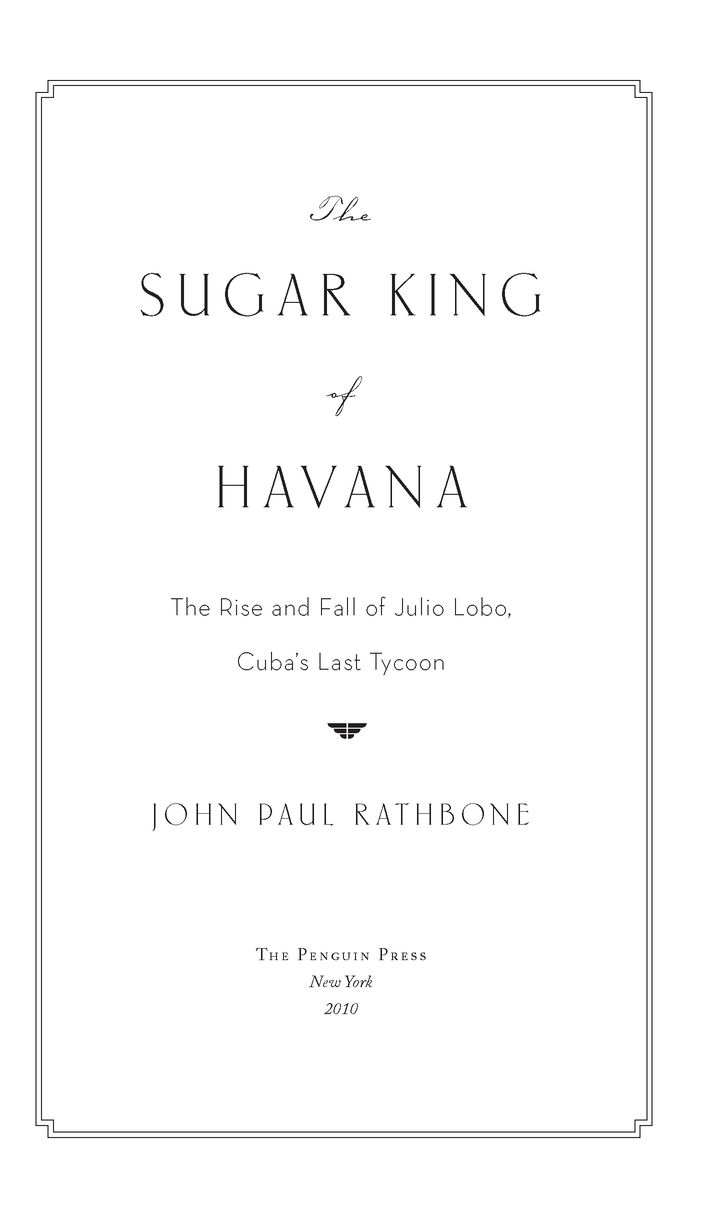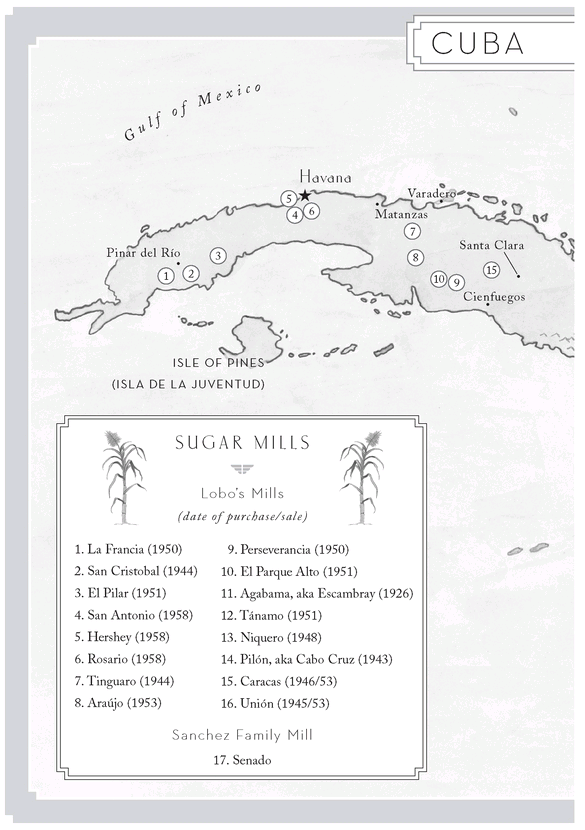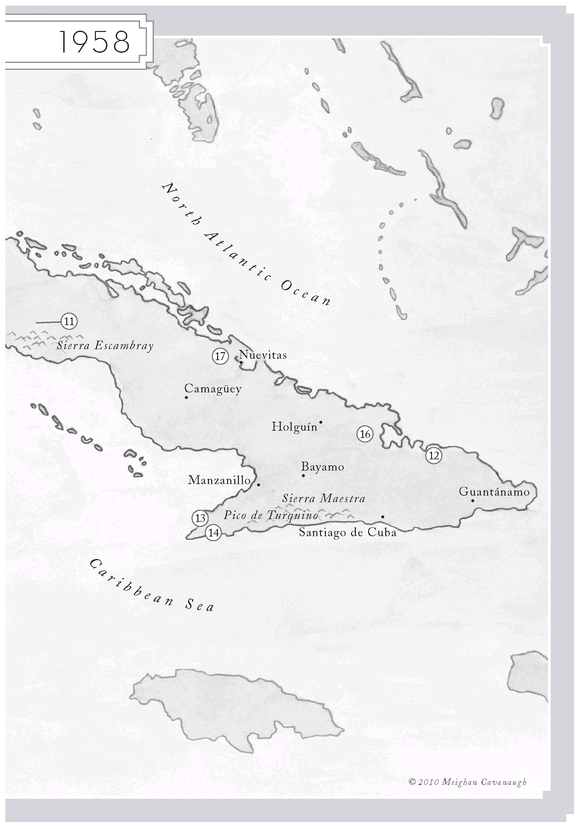Table of Contents
To Lella
For Ruby and Mo
INTRODUCTION

Cuba has known many rich men since Christopher Columbus first introduced sugarcane to the island. At the start of the twentieth century, one Cuban sugar baron tiled the floors of his Havana palace with Italian marble bedded down in sand imported from the Nile. Toms Terry, the most successful sugar planter of Cubas colonial years, left $25 million on his death in 1886not bad considering that the then richest man in the world, William Backhouse Astor, left just $50 million. Yet Cuba does not have to look back more than a century to find extreme riches. In Havana today to have Croesus-like wealth is referred to as ser rico como un Julio Loboto be as rich as a Julio Lobo. After almost five decades of communism, Lobos fabled wealth has become folkloric, and he has become emblematic of a way of life that existed in Havana before the dictator Fulgencio Batista fled the island on New Years Eve 1958. Julio Lobo was the richest man in Cuba before Castros revolution did away with such men.
Every Cuban schoolchild knows Columbuss description of the island as being more beautiful than any I have ever seen; it is Cubas first exaggeration. Yet, like so many beautiful tropical places, the island has also suffered a commensurately cruel history. Lobos life frames and measures a poorly understood period of that historythe sixty-odd years of the prerevolutionary Cuban Republic. He was born in 1898, the year that Cuba won independence after thirty years of fighting against Spain, and he left the country in 1960, two years after Castros guerrillas came down from the hills. In his heyday, Lobo was known as the King of Sugar, not just of Havana but of the world, with an estimated personal fortune of $200 million, about $5 billion in todays dollars. Yet he was also a financier of such talent that Castros government, which was Communist, asked Lobo, a full-blooded capitalist, to work for them after the revolution had begun. So Lobo captures the periods contradictions too.
I had been fascinated by those elegant, decadent, and whirligig years all my life. The curiosity was an inevitable outgrowth of my mothers exile. She was born in Havana and raised into a conventional upper-class Cuban world: her father owned a department store in the center of town; her grande dame mother presided over the home. Her haute bourgeoisie parents mingled in the same world as Lobos, and my mother was a close friend of his younger daughter. Years later, in England, when I was a child and couldnt sleep, my mother would stroke my hair and murmur descriptions of her life in Cuba until I closed my eyes. The props for her stories of an almost dreamlike prerevolutionary life were the photograph albums that she kept on a bottom bookshelf in our living room in London. They had ragged brown leather spines, which creaked when you opened them. The stiff black pages inside were separated by tissue paper, which crackled as you turned them. Some of the photographs had slipped their bindings and stuck together. Then you could only glimpse croppings of a disappeared world: an empty table at a cocktail party, the back of someones head, a mans ankle disappearing into a polished black shoe on a marble step. But most of the photographs had survived intact.
There she is in one faded polychrome, seventeen years old, beaming, dressed casually, sitting cross-legged on a wall, her loafers tucked under her shins. A later photograph, this time in black and white, shows her standing next to her first boyfriend. The handwritten caption underneath anticipates later boyfriends and later pages; Victor y Yo, Victor and I, soon becomes Antonio y Yo, and then Walter y Yothe characteristic concerns of a Cuban debutante. One sequence of photographs shows her uncharacteristically demure in a white ball dress, walking down a spiral staircase at the Havana Country Club during a fashion gala. Turn the page, carefully, and there she is again, this time performing an elegant arabesque while ice-skating at Havanas Blanquita Theater on First Avenue and Ninth Street, since renamed the Karl Marx Theater. Another shows her with a group of friends standing in the shallow end of a swimming pool, cocktails in their hands, all laughing. It looks like a scene of bourgeois American life in the 1950s, perhaps in Connecticut. Only it is a photograph of a swimming pool at one of Julio Lobos many estates outside Havana, where my mother sometimes stayed. It is also the same pool that Lobo supposedly filled with perfume so that Esther Williams, the Hollywood starlet of Bathing Beauty, could practice her swimming routines when she visited the island. Such are the legends from which revolutions are made, and then justified.

My mother. Havana, 1955.
Even as a schoolboy growing up in London, I knew that prerevolutionary Cuba with its perfumed waters had indisputable failings. Everyone in 1970s England told me so; the message seemed to be in the very air I breathed. The red double-decker bus that I took to school each day passed a fashionable clothes shop on Kensington High Street called Red or Dead, which later became Che Guevara, and when that shop finally closed down a restaurant opened opposite, called Bar Cuba. Not only was that distant island ruled by one of the worlds longest-serving heads of statewhose accomplishments in health and education I was perforce quick to recognizeeverybody seemed to revere him too. It was, in that most characteristic of English emotions, embarrassing. Yet even as a British schoolboy wearing shorts, a cap, and scuffed black shoes, I wondered if Cubas failings had been so exceptional as to have nurtured a revolution that had once brought the world to the brink of nuclear war and had dispersed my mothers family and so many others around the world. It was so at odds with the stories that my mother and her family told me, even though I recognized them as tales of privileged, upper-class Cuban life.
Then I became interested in Julio Lobo. His life and business empire helped shape the troubled years of the Cuban Republic, the very era I was interested in. If any story could reveal how Cuba worked in the prerevolutionary years and disentangle the contradictions that I held inside me, I thought, it would be his. Remarkably, there was no biography. Even the best history books mentioned Lobo only briefly. Such fragments were tantalizing; they suggested a richer and more complicated life, lived on a bigger canvas.
Some writers believed Lobo was Dutch and his name a Hispanicization of Wolf, which lent him the ruthless air of a restless egoist, the evil speculator of Communist lore. Others praised his philanthropy. I look at his jowled hounds face in an old photograph, glowing like white stone, and see the look of a solitary man who loved reading and books. In another I examine his stilled gaze, focused on an event taking place outside the frame. Unfreeze and rewind these single images, though, and Lobos life has the explosiveness of a Hollywood movie, one that might have screened in an elegant art deco Havana theater in the days when the city had 135 cinemasmore even than New York. Lobo swam the Mississippi as a young man, fenced in duels, survived assassins bullets, was put against the wall to be shot but pardoned at the last moment, courted movie stars, raised a family, made and lost two fortunes, and once told Philippe Ptain, Marshal of France (perhaps apocryphally but also in character),





